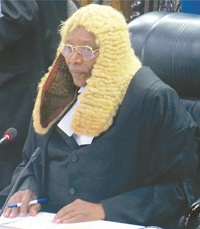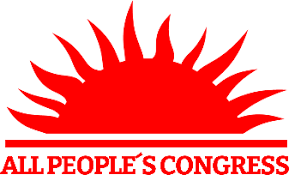By Kemoh Saidu Sesay
The Anti-Corruption Commission (ACC) has commenced investigation on corruption allegations that the Clerk of Sierra Leone Parliament, Paran Umar Tarawally has found himself embroiled in a corruption scandal, shaking the very foundations of the nation’s democratic values.
The controversy centres on the clerk’s wife Abibatu Tarawally, who is allegedly on government payroll and receives a monthly salary as a parliamentary staff member despite never setting foot inside the legislative chambers of Sierra Leone for work.
At a time when Sierra Leone is economically epileptic in her strive for transparency and accountability, the scandal strikes at the core of the nation’s democratic principles. The clerk, entrusted with upholding the integrity of parliamentary proceedings, now faces public scrutiny, as the scandal threatens to erode the citizens’ trust in their elected representatives.
This stark display of nepotism not only flies in the face of meritocracy but also has broader implications for Sierra Leone’s body politics. The appointment of an individual with no contribution to the functioning of parliament raises questions about the fairness of employment practices, leaving the citizens disillusioned and denying qualified individuals the opportunity to serve their nation.
This revelation not only raises ethical concerns but also underscores the critical role of the ACC in safeguarding Sierra Leone’s body politics.  The importance of the ACC at a time like this cannot be overstated. The ACC, tasked with combating corruption, plays a pivotal role in ensuring that public officials are held accountable for their actions and inactions. This scandal serves as a litmus test for the ACC’s effectiveness in uncovering and addressing corruption within the highest echelons of government.
The importance of the ACC at a time like this cannot be overstated. The ACC, tasked with combating corruption, plays a pivotal role in ensuring that public officials are held accountable for their actions and inactions. This scandal serves as a litmus test for the ACC’s effectiveness in uncovering and addressing corruption within the highest echelons of government.
Sierra Leone’s parliamentary system faces a credibility crisis as citizens question the ability of lawmakers to prioritize the nation’s interests over personal gains. In this tumultuous environment, the ACC emerges as a beacon of hope, tasked with investigating such allegations and restoring public trust. Swift and thorough action by the ACC is essential not only to hold the guilty parties accountable but also to demonstrate that Sierra Leone is committed to rooting out corruption at all levels.
Furthermore, the international implications of this scandal cannot be ignored. Foreign investors and aid organizations crucial for Sierra Leone’s development may hesitate to engage with a government tainted by corruption allegations. The ACC’s role becomes pivotal in assuring the international community that Sierra Leone is actively combating corruption, fostering an environment conducive to sustainable development.
In conclusion, the corruption scandal involving Sierra Leone’s clerk of parliament highlights the urgency of a robust and effective Anti-Corruption Commission that is not clouded with bias and prejudice. The ACC’s role in investigating, prosecuting, and preventing corruption is crucial for maintaining the integrity of Sierra Leone’s body politics, restoring public trust, and fostering an environment conducive to ethical governance and sustainable development.













